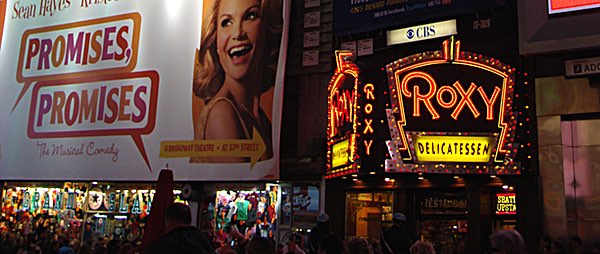- By New York State Comptroller's Office
- Entertainment
 Print
Print 
The state Department of Labor is falling short in enforcing New York’s laws to protect child performers, according to an auditreleased today by New York State Comptroller Thomas P. DiNapoli. State auditors found shortfalls with how work permits were given to children and employers, inadequate monitoring of work conditions, and insufficient enforcement of requirements to set aside some of the children’s earnings in a trust.
“New York needs to do more to protect child actors, dancers, musicians and models,” DiNapoli said. “We have laws on the books to make certain that children are working with permits, and employers and parents are following the rules to protect the safety, health and financial rights of child performers. The state Department of Labor should hold the entertainment and modeling industries accountable to protect these children.”
In New York, the state Department of Labor (DOL) enforces the laws to protect child performers, including issuing work permits, observing working conditions and enforcing trust accounts. DOL issues one-year permits to performers under 18 years of age and certificates to employers every three years. From April 1, 2014 to October 31, 2016, DOL issued about 27,000 child performer permits including: about 8,000 temporary permits, 11,000 new annual permits, 4,500 annual permit renewals, and 3,500 permits not identified by type. For the same period, DOL issued 844 employer certificates.
The law also requires 15 percent of a child’s earnings to be placed in a trust. In 2004, after laws were adopted to better protect child performers, the Comptroller’s office established accounts for performers’ earnings (deposits from employers) if parents or guardians failed to establish a trust account or to provide trust account information to the employer. Through October 2016, more than $640,000 had been deposited with the Comptroller for about 5,600 child performers.
Auditors examined the period of April 2014 to March 2017 and found:
- DOL issued both annual permits and employer certificates without receiving all the documentation required, such as proof of a child’s date of birth, evidence of the child’s academic performance, health forms and trust account information. Auditors tested permit records and found more than half of the annual permits sampled were issued without Social Security numbers, trust information or other required documentation.
- At least 133 children were issued multiple temporary permits, which DOL failed to identify. Children are allowed only one temporary permit in a lifetime. One performer, who obtained a temporary permit which is only valid for 15 days, had 19 deposits into the trust held by the State Comptroller for multiple performances over a two-year period. Auditors found five performers without permits were paid over $10,000 for a single performance, and three performers without permits were paid over $20,000 each for a single performance.
- DOL did not conduct any site visits or assess workplace conditions during the audit period. Nor had it taken measures to proactively verify permits, certifications, and education or safety provisions for child entertainers.
- The numbers of annual deposits with the State Comptroller increased from 14 deposits in 2004 to 1,174 in 2016. Thirty-five percent of this money was deposited in just the last year. However, half of this money was deposited more than five years ago, and 29 percent over 10 years ago. In some cases, the funds have been held for so long that the performers are no longer children, having already attained the age of 18. Some accounts consist of multiple deposits over years, and some are for just one performance.
- The highest number of trust account deposits for one performer was 27, and the highest single deposit was over $26,000. Accounts are as old as May 2004, with one having a balance over $25,000. However, the amount owed to most child performers is small, ranging from$1 to $100.
The Comptroller's office routinely attempts to reach out to parents or performers when money is turned over to it for the trust account. Where there are poor records or incomplete records, it is difficult to identify the rightful owners.
DiNapoli’s auditors recommended DOL:
- Design and implement a system of internal controls to ensure that the laws governing the welfare of child performers are followed and that parents/guardians and employers comply with the requirements of the law.
- In conjunction with the Office of Information Technology Services, develop a system that can easily and readily store, access, and analyze required child performer and employer information and develop a process to identify and correct apparent System flaws.
DOL disagreed with many of the audits findings. Auditors point out that DOL had numerous opportunities to comment on the audit’s findings and did not provide any preliminary feedback and incorrectly read its own data. DOL’s complete response is included in the audit.
v13i29



